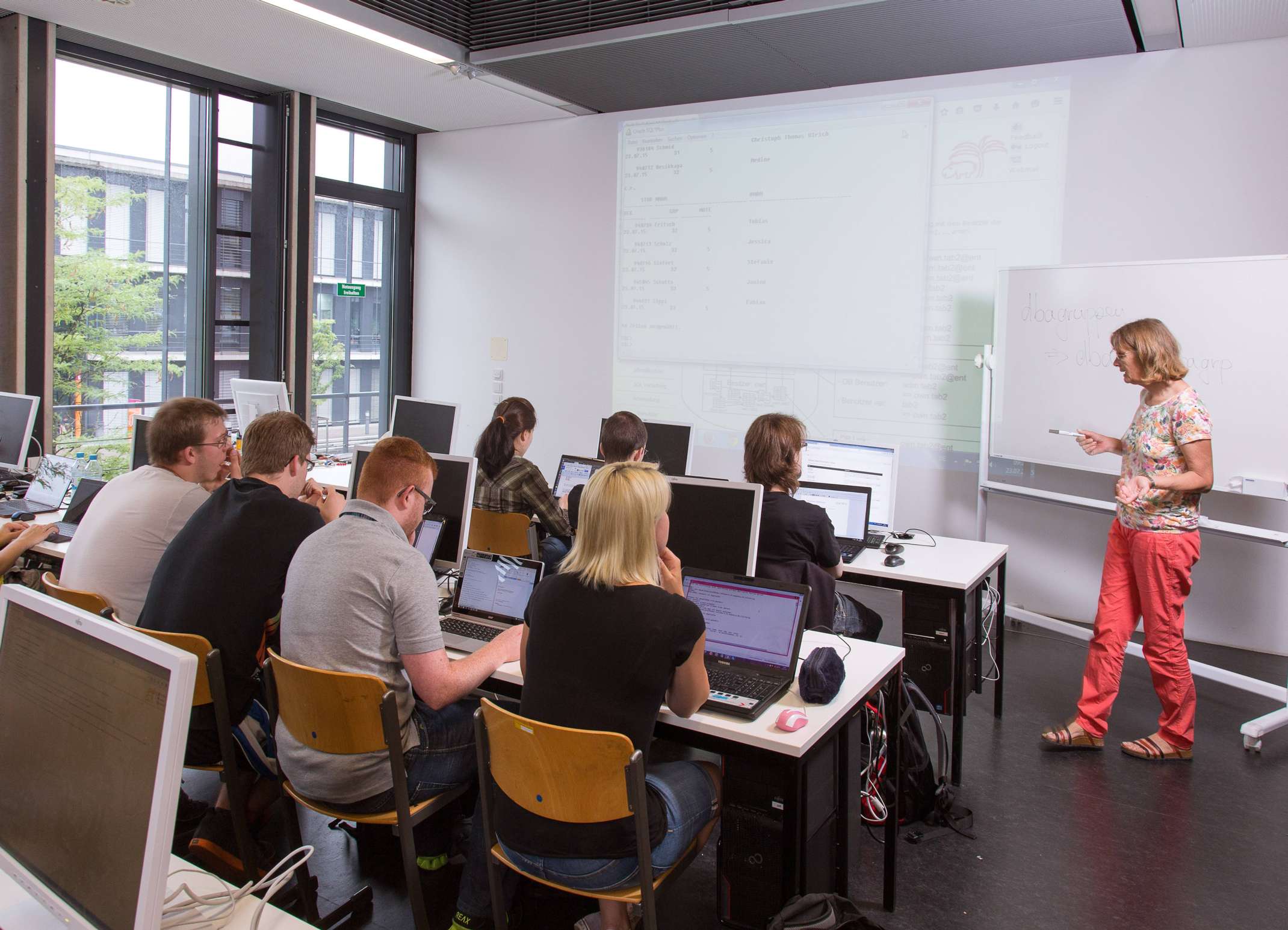

Contact | |
Phone: | +49 821 5586-3455 |
Contact | |
Phone: | +49 821 5586-3477 |
Equipment
- Celsius workstations
- Windows 7, Debian
- Tools for SW development
- Projector at lecturer workstation with possibility to connect a laptop
- VPN connections
Practical training, projects
Programs of varying complexity on topics of daily practice are developed in C, C++ and Java. While there is a focus on procedural programming in the first semester, the second semester concentrates on object-oriented programming.
C/Java is also used in programming suitable organization forms for storing and processing data. The aim is to implement data structures and access algorithms (stack, queue, heap, hash, search and sorting methods) in practice.
Databases
The Databases lecture places a focus on semantic data modeling and system-independent database design, taking an in-depth look at normal form theory. The architecture of a database management system and suitable physical data structures are demonstrated using RDBMS ORACLE.
Database applications
The focus of the Database Applications lecture is on the application-related use of relational databases. Based on the principle of data independence, database applications are developed with the implementation of general functionality in the database or the API. This includes concepts of active databases that are realized with procedural SQL and triggers, as well as methods for generating programming tasks. Internet and ODBC/JDBC connections are discussed for the application interface. During the practical training, an application with Oracle, PL/SQL and Apache is created in small teams.
Database specialization
The Database Specialization lecture deals with concepts of logging and recovery, object orientation, distribution and physical data organization in combination with database management systems. With the understanding of internal processes of a DBMS, it lays the foundation for optimum database administration. Performance and scalability are discussed based on flowcharts for SQL statements all the way to Oracle-RAC (Real Application Cluster). In particular, the search for bottlenecks in the multi-user environment of a large database application is demonstrated.
Information systems
Information systems are software systems for processing the information stored in a database. Such information can be generated from diverse data domains including operational, geographical, graphical, audio-visual and even genetic data. In the Information Systems lecture, basic concepts, architectures, implementation requirements and the use of such systems are introduced and illustrated based on individual products.
